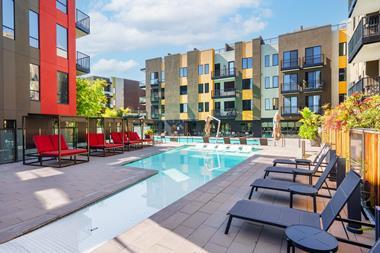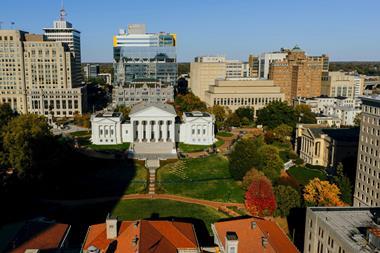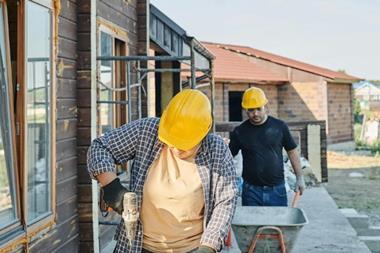An expansion in the mortgage market and constructive public-private co-operation have boosted Brazil's affordable housing sector. Alasdair Findlay-Shirras reports
Brazil's housing construction sector is surging at present as it focuses on providing the millions of new homes that are needed for lower- and middle-income buyers. Despite the credit crunch and the much publicised worldwide reduction in liquidity, residential developers in Brazil have been highly successful in raising capital, anticipating the continued strong demand for housing through the next decade.
Since the new administration took office in 2003, the government has succeeded in creating an economy ripe for foreign investors and actively promotes a fiscal and political environment conducive to further growth. Major investment is continuing to be made in improving Brazil's infrastructure. Inflation in Brazil has been drastically reduced in recent years; it currently stands at 5.4% and is still tracking downward.
Brazil has the tenth-largest GDP in the world, and is one of the four leading developing economies, along with China, India and Russia. By 2050, the economy will be of a similar size to Japan according to predictions from Goldman Sachs. The country has an abundance of cheap labour and materials. This, coupled with undervalued real estate, shows enormous potential for growth.
In Brazil, the real estate market essentially comes down to housing. Housing drives the economy and the health of the Brazilian market is directly related to internal factors - particularly employment. As long as job creation and local interest rates remain steady, domestic demand and the expansion of the mortgage market will continue to support housing activity.
Regulations introduced in 2002 have had a genuine impact on property for sale in Brazil, as well as the whole real estate market in the country. These changes revolved around real estate guarantees, and allowed banks or the mortgage supplier to ‘own' a property until the borrower had repaid the loan in full.
This replaced a system where the mortgage-holder often had to wait seven years to repossess a property on which the borrower had defaulted. Now it is possible for banks to repossess property in less than one year. According to Antonio Montes, professor at the Instituto de Empresa in Spain, the regulations have democratised the real estate market, making it more realistic for low-income earners to get onto the property ladder.
Since the change in the mortgage regulations, the number of property loans has more than tripled. According to the Brazilian Association of Real Estate and Savings Institutions, 195,900 mortgages were granted in 2007, up from 53,787 in 2004.
This expansion of mortgage credit is one of the most encouraging aspects of Brazil's affordable housing market. Mortgage credit stands at 2% of GDP, so it is clearly an emerging market and ideal for investment. In many respects, the Brazilian real estate credit market is like Mexico 10 years ago, and is forecast to reach the present Mexican level of 10% of GDP within 10 years.
The population of Brazil currently stands at 188m. The vast majority are low-income families who have yet to take advantage of the improved options available within the last few years. There are differing assessments of the size of Brazil's housing deficit, though the accepted figure is 7m units in total. The deficit comprises housing in the US$35,000-65,000 range (€22,000-€42,000), with a smaller market in middle-class housing. Just under 14% of the housing deficit is concentrated in the low to middle income range and represents more than a million homes.
There is also demand at the lower end, for housing below US$35,000 a unit, which is being addressed by an expansion of government mortgage subsidies.
The size of the housing deficit is expected to balloon in the next 20 years, as the baby boomer generation of the 1980s and 1990s comes of age. By 2020 there is expected to be unsatisfied demand for 1.5m extra new housing units a year.
Key areas for investment are the most important urban and agricultural centres of the country, including São Paulo. The North East, in particular, shows a large housing deficit, more evenly split between urban and agricultural domiciles than other geographic regions.
The drive to provide new, affordable housing in Brazil is a co-operative venture between the private sector and the government. Caixa Econômica Federal (CAIXA), the second-biggest bank in Brazil and one of the largest government-owned financial institutions in Latin America, indirectly supports the real estate industry with subsidised loans to pre-qualified home-buyers and, more directly, through construction finance to developers. Projects qualifying for assistance must meet certain technical criteria to do with the number and size of the rooms, as well as strict specifications on construction and materials used.
It is in assessing mortgage applicants that CAIXA has proved itself to be unusually flexible. Brazil has a large informal economy and many lower income applicants have a difficult time proving they are earning ‘formal' money.
Even those applicants with a formal job may supplement their income with one or two other informal activities - such as selling perfume or other items from street stalls. In these cases, CAIXA will accept secondary proof of income, such as bank statements - should the applicant have a bank account - housing rental contracts and instalment payment agreements for goods like televisions or cars.
Given this benign convergence of circumstance, Brazilian real estate developers are targeting a return on investment of 30-40% in real terms, with net margins of 12-20%.
The drive to build more affordable housing, and particularly the public-private partnership underpinning it, is considered one of the more innovative housing programmes in the developing world. Among countries that have looked at the model is South Africa, which has its own housing deficit crisis. Where Brazil leads, other emerging markets may well follow.
Alasdair Findlay-Shirras is a partner at First Avenue Partners












